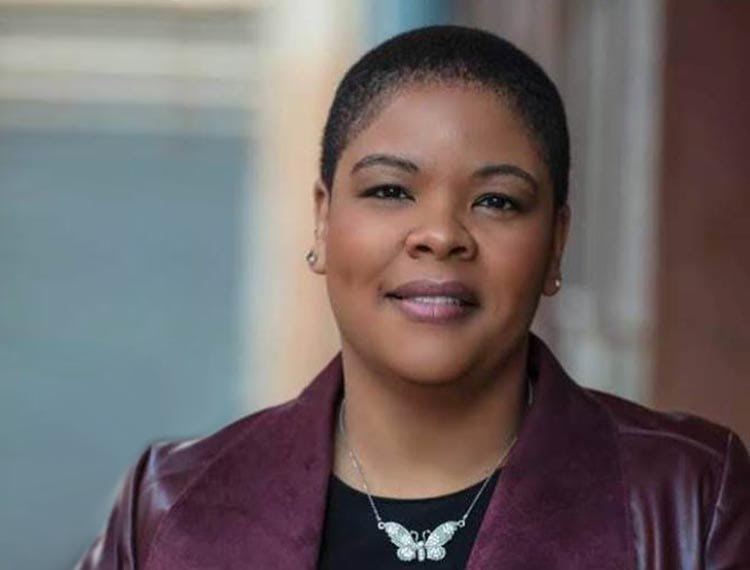Adverse Childhood Experiences: The Invisible Backpack

#TraumaInformed – Prior to the pandemic, the number of black children that were impacted by adverse childhood experiences (ACEs) was staggering at sixty-one percent in the United States.
Over the past year with quarantining and social distancing, there has been a spike in suicide rates, drug overdoses, child abuse, and domestic abuse leaving even more children traumatized.
Sadly, this trauma that children go through shows up as problematic in school.
Although many schools are now virtual or hybrid, once all students return we can expect to be met with the aftermath of the pandemic – ACEs, the invisible backpack.
Trauma may manifest itself in school in many different forms.
Some common manifestations are learning problems and problematic behaviors that often lead to an evaluation for special education.
This is troublesome because many times the school does not take the student’s trauma into consideration and ultimately ends with a misdiagnosis and not addressing the actual trauma.
In fact, many times students that have suffered from trauma are further exacerbated by disciplinary actions taken by the school which ultimately leads students being pushed out of school and into the juvenile system.
Research shows that over ninety percent of those in the system have at least one ACE.
Through terrifying times school is not a priority, it’s all about survival
As a child, I witnessed my fair share of domestic abuse, drug use, violence, and much more. My mother was in an abusive marriage where my siblings and I witnessed much of the abuse; leaving us feeling helpless. Once my mother decided to leave her marriage, our lives became even more traumatizing. We lived in poverty, which is an ACE of its own, and during that time a series of traumatic events occurred.
It crescendoed when my mother’s new boyfriend, whom she was pregnant by, was murdered and shortly after, she slipped into a deep depression. When she was awake, she would drink until she passed out. My siblings and I were neglected and were truant from school during this time.
When I actually went to school, learning was the furthest thing from my mind. Instead, I had a million different thoughts going on in my head, like who was taking care of my infant sister while my mother was passed out on the couch.
My mother’s depression ended with her committing suicide when I was only eight years old. I woke up to find her dead body lying next to me. When I was living through those terrifying times, school was not a priority. It was all about survival. My grades and overall engagement slipped tremendously because I was completely disconnected from school.
Many students are still living and experiencing similar traumatic experiences as represented in the pre-pandemic statistic. Sometimes, even worse than my own. I was a school psychologist for a large urban high school for several years where I served students that had been through or were going through some extremely traumatizing times.
Listening to some of their stories made me realize how detrimental ACEs are to academics, behaviors, relationships, and social emotional maturity. I now know that ACEs can impact your entire life, harming your physical and mental health which ultimately shortens your lifespan.
Yes, ACEs are that serious. It can cause post-traumatic stress disorder (PTSD), depression, bipolar disorder, hypertension, diabetes, obesity, and much more. School-based behaviors could present as attention-deficit hyperactivity disorder (ADHD), oppositional defiant disorder (ODD), learning disorders, and adaptive delays. This is not an exhaustive list, as there are many others.
How can educators better serve students impacted by trauma?
So, the question becomes how can educators support students’ emotional needs while still being in their scope of practice without taking away valuable instructional time?
I created Reverse the Adverse, a trauma-informed professional development that teaches urban educators how to better serve students impacted by trauma. The training was inspired by my former students and my experiences with ACEs.
Since I understand the importance of trusting relationships in helping students overcome ACEs, that is what Reverse the Adverse is all about. It encourages educators to reflect on how personal bias and trauma may dictate their interactions and expectations of students.
Furthermore, the training teaches about trauma and how it is manifested in school. With this, educators are then given functional strategies to build trusting relationships, decrease problem behaviors, increase engagement and motivation, and improve overall academic outcomes. Educators have reported seeing an eighty percent increase in grades in just one semester.
Nicole Thompson, Ed.S Certified School Psychologist, The Urban School Psychologist
About the author: Nicole Thompson is a certified school psychologist, educator, author, public speaker, and mentor to urban youth. In recognition of her impact in Black communities across Philadelphia and within her field, she received a standing ovation following her presentation at the 2019 Harvard School Mental Health Conference.











Responses